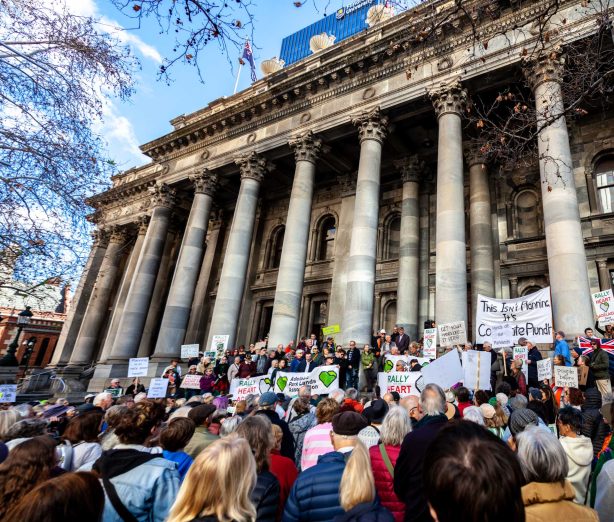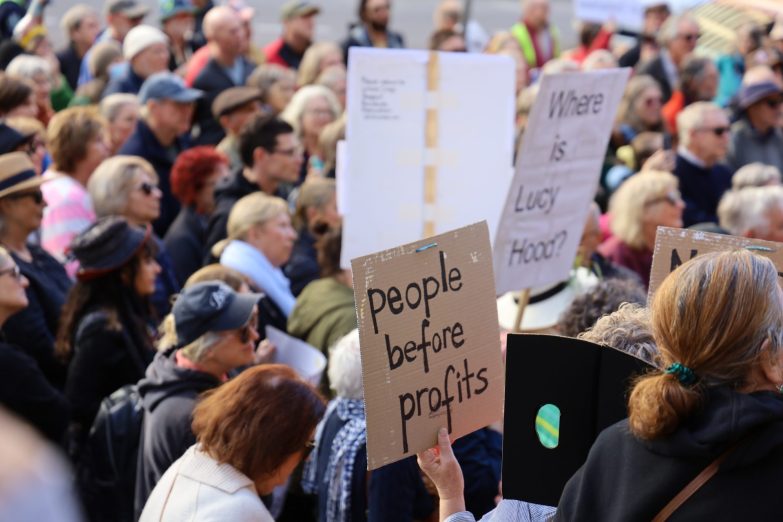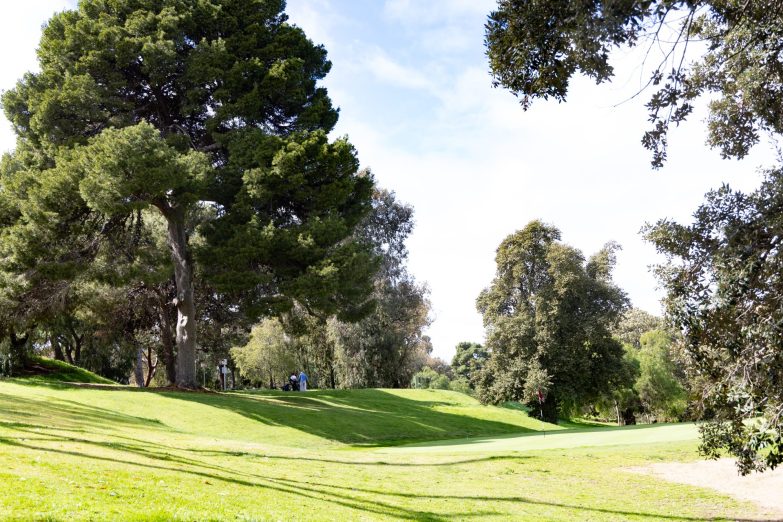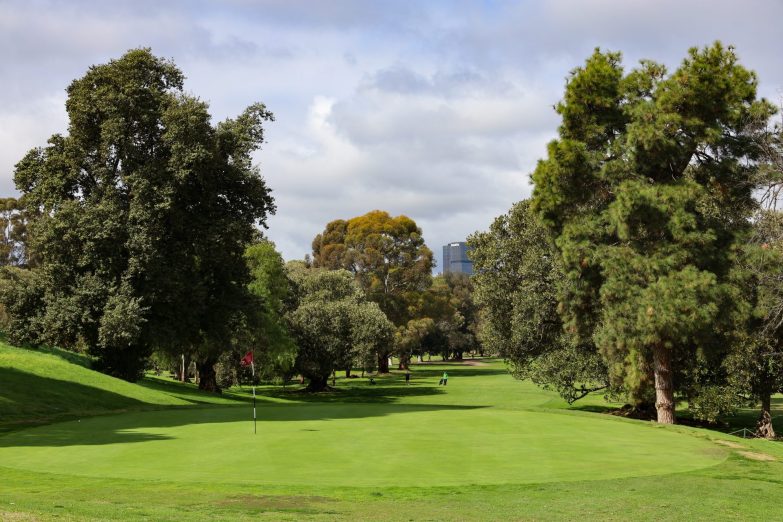Plans for large-scale developments in Adelaide’s precious park lands has sparked significant protest in recent months. Adelaide Park Lands Association Deputy President and former Women’s Suffrage Centenary executive officer Loine Sweeney challenges South Australians to think about what is at stake, in a place founded as a ’Paradise of Dissent’.
As we approach South Australia’s bicentenary, we have an important opportunity to reflect on where we’ve come from and where we are going. There is a widely held sense that Adelaide and South Australia are at a crossroads in how the future is being shaped, and increasing concerns about what democratic say the community is having in that. This has been brought into sharp relief by recent protests defending Adelaide’s globally unique features, born from the founding idea of South Australia as a Paradise of Dissent.
This reformist vision led to an extraordinary innovation – the world’s first planned public park. The radical idea was to break away from parks and nature being accessible only to the wealthy. To this day, Adelaide remains the world’s only ‘City in a Park’. The Adelaide Park Lands Association (APA) champions the park lands remain open, green and public, and that they not be given over to exclusive commercial events, fenced off with ticketed entry and repeatedly damaged and then patched up in the pursuit of private profit.
The enlightened vision on which South Australia was founded also led to a series of world-leading suffrage reforms that are formally recognized by the Australian Heritage Council. It was on North Terrace that our Parliament passed the first legislation on the planet to bring about secret ballot voting, to ensure each vote was counted as one value, to give women their full political rights to vote and stand for political office and, in so doing, to achieve universal suffrage regardless of property, race or gender.
South Australia should be shouting from the rooftops about these extraordinary achievements, and t our government should be protecting the sites where these advances were achieved. We should draw on them as a source of strength and inspiration, build on them with public programs, and highlight them as global achievements in civic education and to visitors.
However, as our bicentenary draws closer, the Malinauskas Government, encouraged by the Property Council, is treating these hallowed public sites as wasted space, unless they can be commercialised or used as free land banks. They frame these developments as “getting things done” in a city that is “growing up”, but in practice, our proud heritage is seen as prime real estate and is, arguably, being ‘done over’. Such is the haste and determination to take or hand over these key sites, that the government recently made unprecedented moves that have pre-empted public scrutiny and the usual approval processes.
Disturbing developments
The first of these moves was immediately behind our Parliament House, where the Sydney-based Walker Corporation was given Festival Plaza to build a commercial skyscraper. Office towers are suited to the commercial districts of cities, so enabling a speculative skyscraper to be built on this key public land amounts to vandalism. It will strip away heritage vistas and diminish the main view of our Parliamentary buildings.
The Premier and his Planning Minister, Nick Champion, claimed that approval for what is known as Walker Tower 2 was in the hands of an independent umpire, the State Commission Assessment Panel (SCAP). But the government stood by while the developer moved, ahead of the SCAP meeting, to construct underground car-parking and foundations for the proposed skyscraper. Champion even declared on radio that they’d already sold the air rights above the site to Walker. This pre-emptive action was breathtaking. It seemed a fait accompli that our home of democracy, our Parliament, would be overshadowed by a corporation being granted prize riverbank views at public expense.
An alternative vision for the plaza, advocated by the Save Festival Plaza Alliance of which I’ve been part, was to create a world-class, low-rise democracy hub that highlights South Australia’s achievements in global democracy. Contemporary overseas experience of such hubs shows they can be major drawcards for visitors.
Following on from the public loss of Festival Plaza was the State Government’s sudden move to seize control of a large area of the north park lands to redevelop it for the Saudi-backed LIV Golf juggernaut. Controversial laws enabling this takeover from the Adelaide City Council were passed in June. Kaurna Elders have since revealed that the works required for such an elite golf course on Pirltawardli/Possum Park and the adjacent John E Brown Park, are likely to disturb land of deep significance to traditional owners and that the nature of consultation with them is failing to meet legislative requirements.
Setting a better course
On a Sunday morning this past winter, I found myself walking to Parliament House to MC a protest gathering in urgent defence of these two sites, which make Adelaide unique. Looking down from the steps, I saw a big, vibrant and very diverse crowd had come in from all over the metropolitan area, the Adelaide Hills and even country regions to ‘Save the Heart of Adelaide.’ They came because something precious to Adelaide’s heritage and future was at stake. Speaking later on radio, the Premier dismissed those raising concerns as “rabble-rousers.” What I saw at the rally and at other gatherings of concerned citizens was democracy in action and a continuity of protest that has long defended South Australia’s natural, built and cultural heritage.
The stakes are clear. What is at risk is not just land or a skyline, but our ability to make Adelaide a better city and South Australia a better place — for citizens, for workers, for residents, for visitors. Faced with decisions being pushed through by an electorally unassailable government, concerned citizens and organisations need to build alliances, think strategically and make their voices heard — and not just in the Adelaide electorate. We must use ‘people power’ to actively defend the very nature of democracy and make it work for the community.
In 2036, Adelaide will be 200 years old. We know we will be facing the increasing impact of climate change. We might also be facing a skyline of broken promises and regret, with heritage, democracy and environment traded away for short-term gain. Or we could mark that milestone with a ‘City in a Forest’ – a place where democratic heritage, Indigenous custodianship and environmental stewardship are intertwined. If we follow this alternative path, our bicentenary will not be mere commemoration, but a realization of a true Paradise of Dissent, where Adelaide’s future unites its proud heritage of reform with a healthy democracy and justice for its first custodians.








